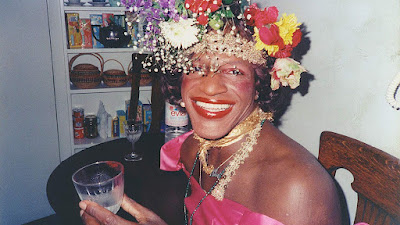When we discuss the LGBTQ+ community, one name that has to be brought up is
Miss Marsha P. Johnson.
In today’s society, many people forget how big of an impact she had.
Born in 1945 and raised in Elizabeth, New Jersey. Before she had transitioned, she wore dresses at a young age. Marsha stopped wearing them after being sexually assaulted. Marsha ended up moving to New York after graduating high school and her activism began. National Women’s History Museum states, “Once in New York, Johnson returned to dressing in clothing made for women and adopted the full name Marsha P. Johnson; the “P” stood for “Pay It No Mind,” a phrase that became her motto. Johnson described herself as a gay person, a transvestite, and a drag queen and used she/her pronouns; the term “transgender” only became commonly used after her death.” As time progressed, she began to be more involved as an activist. One of her most memorable accolades is her at the Stonewall Raid. Marsha and many others helped hold protests during this time. The text states, "The raid on Stonewall galvanized the gay rights movement. The first Gay Pride Parade took place in 1970 and a series of gay rights groups—including the Gay Liberation Front, a more radical organization, and the Gay Activist Alliance, a more moderate and focused spin-off group—emerged. Johnson was involved in the early days of both but grew frustrated by the exclusion of transgender and LGBTQ+ people of color from the movement." She never was afraid to use her voice, especially about the injustice of the LGBTQ+ community. Speaking up for those who were homeless, had HIV/AIDS, and other gay people. Sadly, she passed away in 1992. Her death will remain suspicious to many because the police ruled it as a suicide, but it seems like foul play was at hand. She will forever be admired and remembered.
I wanted to bring her to light again because there has been a current uproar on social media and in the news. There have been some individuals who want to remove transgender and queer from the LGTBQ+ brand, but they forget that without Marsha? Most of these rights and other achievements would not be possible. Don't forget the hand that opened the door for you.
Sources:
https://www.womenshistory.org/education-resources/biographies/marsha-p-johnson

Comments
Post a Comment